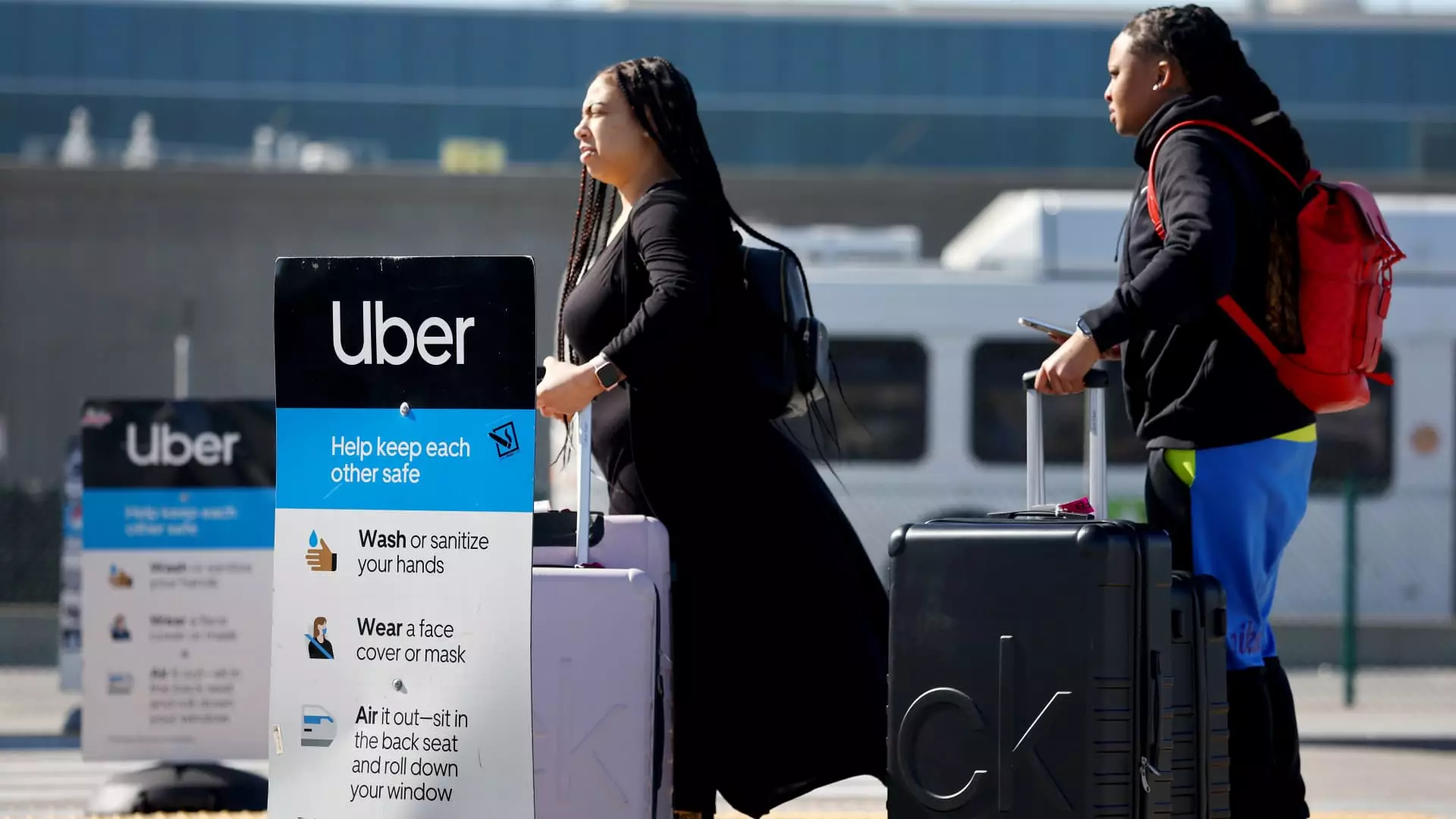In a significant move within the travel industry, Delta Air Lines has announced its transition from an eight-year partnership with Lyft to a new alliance with Uber for its SkyMiles loyalty program. Set to launch this spring, the collaboration aims to enhance the travel experience of its members while tapping into the ride-hailing giant’s extensive user base. This shift highlights the growing importance of strategic partnerships in the competitive airline industry, as companies strive to augment customer loyalty and increase revenue through ancillary services.
Under the new arrangement, Delta SkyMiles members will have the opportunity to earn miles based on their spending with Uber. Specifically, travelers can accumulate one mile per dollar spent on UberX airport rides, two miles for premium services like Uber Comfort and Uber Black, and a notable three miles for every dollar spent on Uber Reserve trips. This structured earning scheme reflects Delta’s adaptive approach to customer engagement, catering to the preferences of modern travelers who seek seamless and rewarding travel experiences.
Moreover, the integration extends to Uber Eats, where members can earn one mile for every dollar spent on food orders exceeding $40. This dual focus on transportation and food delivery illustrates a broader trend in loyalty programs becoming increasingly interconnected with day-to-day consumer behaviors, thereby generating additional touchpoints for engagement and enhancing member value.
While the specifics behind Delta’s decision to part ways with Lyft have not been publicly disclosed, it can be inferred that the airline’s choice results from multiple strategic factors. Over the years, Delta has systematically ramped up its collaborations with various major brands, including Starbucks and Hertz, indicating a preference for partners that present strong synergy with their customer base. With Uber reporting a staggering 161 million monthly active users across its services by the end of September 2023, the potential for enhanced member engagement and acquisition is compelling.
Delta had previously enjoyed a fruitful alliance with Lyft, contributing significantly to the loyalty program. However, Lyft’s recent market performance, with 24.4 million active riders, suggests a growing competitive landscape. In light of Uber’s substantial growth, Delta appears to be prioritizing partnerships that promise higher engagement and patronage, which could lead to greater cumulative mileage earnings for its members.
The trend of airlines linking their loyalty programs with external companies is not a new phenomenon. The proliferation of customer loyalty initiatives has transformed how consumers engage with travel brands. For many airlines, such partnerships have become pivotal in generating incremental revenue. According to data from Delta’s investor day last November, revenue from credit card partnerships, such as those with American Express, is projected to reach $7 billion in 2024, highlighting the financial significance of these ties.
Furthermore, this strategic move aligns with a broader industry trend where airlines are utilizing technological advancements to offer improved services and member benefits. At the recent CES tech show in Las Vegas, Delta announced a new artificial intelligence-powered assistant for its app, signaling a commitment to innovative travel solutions. Such advancements are essential in a landscape that increasingly demands not only convenience and efficiency but also personalization and engagement.
As Delta shifts gears to embrace its new alliance with Uber, members transitioning from Lyft can expect ongoing communication regarding their Miles and the potential for new earning opportunities. This transition period is critical; as both companies articulate their mutual benefits clearly, they can ensure a smooth shift without alienating dedicated customers accustomed to the Lyft partnership.
Lyft, on its part, acknowledges the valuable years working with Delta and has directed its focus towards other alliances, including notable companies such as Alaska Airlines and Hilton, which may signal a strategic pivot that could potentially offer unique customer benefits and experiences.
This evolution within Delta Air Lines showcases how airlines are constantly seeking to enhance customer value at a time when passengers are returning to the skies in record numbers. As travel recovers post-pandemic, the intertwining relationships between airlines, ride-hailing services, and customer loyalty programs will continue to reshape the travel experience, with lasting implications for service delivery and competitive positioning in the market.

